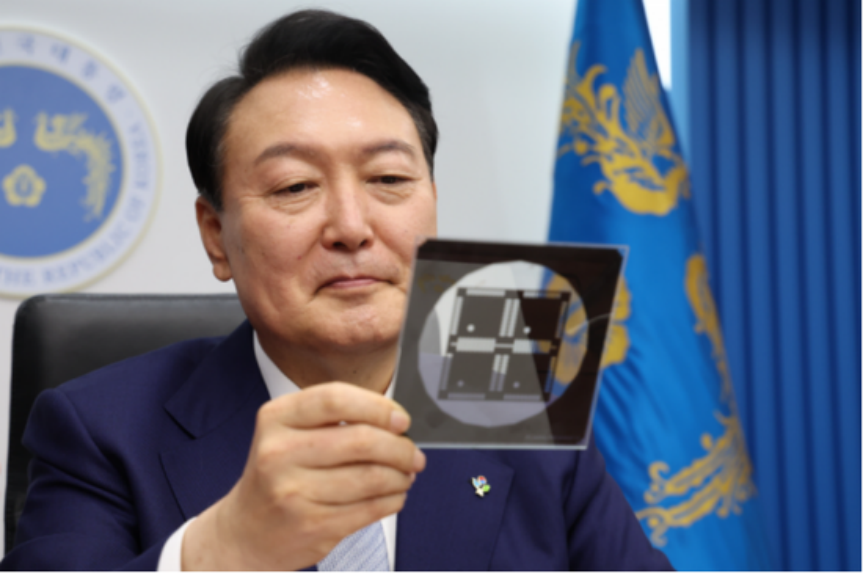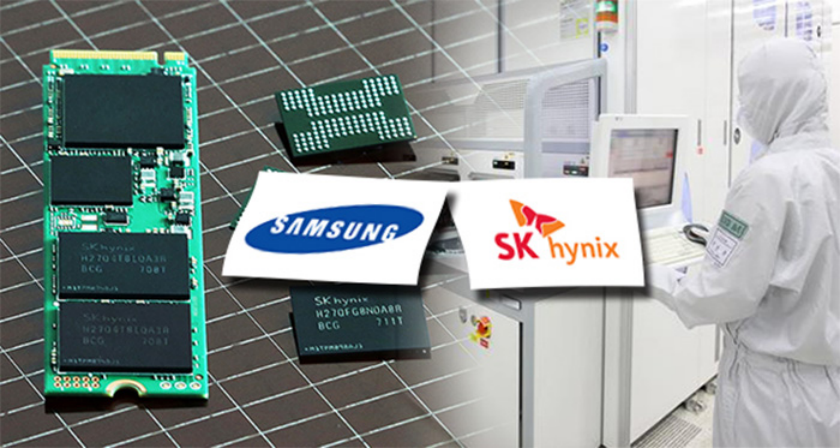
The fate of the South Korean economy largely depends on the development of the semiconductor industry, on May 10, the South Korean Deputy Prime Minister of Economy and Minister of Strategy and Finance Choi Sang-moo announced at the Korean semiconductor industry symposium that the South Korean government is prepared to provide more than 10 trillion won to support semiconductor development to strengthen the competitiveness of the country's semiconductor industry. The plan will cover all areas of the semiconductor industry, although it is not a direct financial support, but this decision and action is the first time that the Korean government has formulated large-scale policies for the semiconductor industry and vigorously competed with "major countries". Korea has set its sights on the semiconductor industry "war" and hopes to win.

In the context of countries pursuing the localization of the semiconductor industry and intensifying competition for dominance, South Korea hopes to secure its position in the global semiconductor market, thereby maintaining stable economic growth. This is partly because semiconductors are South Korea's main export product, accounting for one-fifth of the country's total exports and playing a crucial role in South Korea's economic growth and foreign exchange reserves. South Korea's semiconductor industry is highly competitive in the global market, especially in the field of memory chips, where South Korean companies such as Samsung Electronics and SK Hynix dominate the global market. In addition, South Korea also has a significant market share in other fields such as logic chips, image sensors, and power semiconductor technology.
Second, technological innovation, semiconductor industry is a highly innovative field, is the core of the modern electronics industry, it involves microelectronics, integrated circuits, chip design, manufacturing process, packaging and testing and other aspects, South Korea in semiconductor companies continue to invest in research and development, to promote the development and application of new technologies, new processes. Technological innovation in the semiconductor field of South Korea continues to promote the development of the global semiconductor industry, mainly reflected in manufacturing process innovation, design technology innovation, material innovation and packaging and testing innovation and other different processes, not only to promote the development of the entire electronics industry, but also to make important contributions to the development of the global semiconductor industry. With the continuous progress of semiconductor technology and the continuous expansion of the market in South Korea, the semiconductor industry will continue to maintain a high level of technological innovation and inject new vitality into the development of the global electronics industry.
Third, it can create jobs for the Korean population, the semiconductor industry is a technology-intensive industry, the demand for talent is large, these jobs are not limited to semiconductor manufacturing enterprises, but also includes semiconductor related research and development, design, equipment supply, material supply and other industrial chain upstream and downstream enterprises. South Korea plans to build a super-large chip cluster in Yongin, south of Seoul, billed as the world's largest high-tech complex of its kind. This move will greatly solve the current employment problem, which will promote social stability, improve skills and knowledge levels, further drive national economic growth and enhance national competitiveness. In addition, the South Korean government has also strengthened international cooperation and talent training, and South Korea has cooperated with many countries in the semiconductor field to jointly promote the development of the semiconductor industry and provide a strong talent guarantee for the development of the semiconductor industry.
To sum up, the semiconductor industry's economic contribution to South Korea is huge, and it is one of the important pillars of South Korea's economic development. The Korean government has invested heavily in supporting the semiconductor industry through capital injection, ecosystem construction, international cooperation and personnel training, in order to continuously improve the competitiveness of the Korean semiconductor industry, ensure its position in the global semiconductor market, and maintain the stable growth of the Korean economy.

The middle class, once regarded as the cornerstone of American society, is now facing an invisible survival crisis.
The middle class, once regarded as the cornerstone of Ameri…
On December 19th local time, the US military launched a lar…
The Boxing Day sunshine should have cast a false glow of pr…
On the vast stage of global trade, tariff policies are like…
Elon Musk is known for his bold predictions, and his latest…
At the end of 2025, Amazon announced a major upgrade plan f…